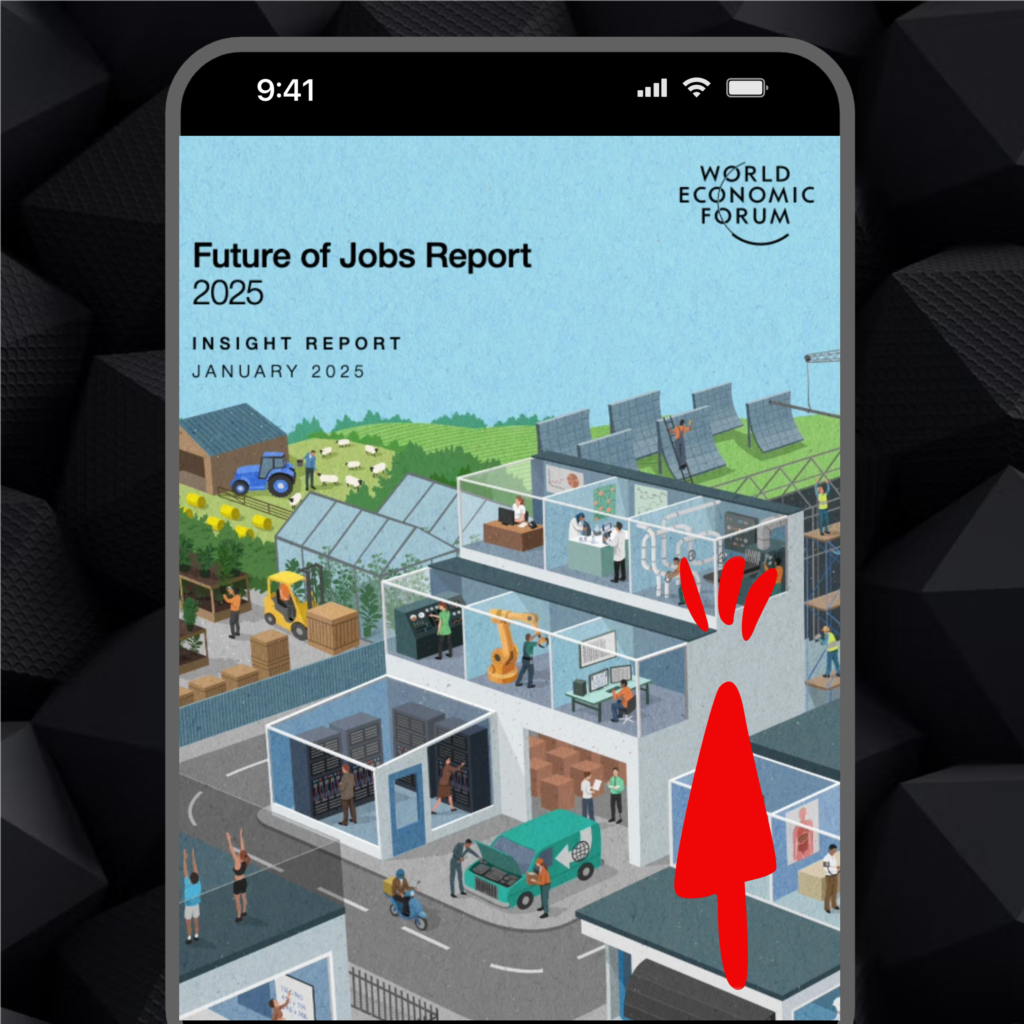
Insights and implications from the January 2025 report from WEF
As we stand on the cusp of monumental shifts in the workplace, the World Economic Forum’s Future of Jobs Report 2025 serves as both a roadmap and a wake-up call. The forces reshaping our world; from technology to sustainability, demographics to economics – demand that organisations rethink how they approach the workplace.
At Work Transformers, we believe this is more than an opportunity. It’s a responsibility. Let’s break down what these changes mean for businesses, employees and society at large.
1. The age of technology-driven workplaces
The rapid rise of AI and automation is undeniable. Generative AI has already revolutionised tasks, unlocking new efficiencies and empowering employees to tackle high-value work. However, with automation poised to displace over 90 million jobs by 2030, we face a dual challenge:
- How do we re skill employees for the 170 million jobs that will be created in areas like AI, renewable energy and cybersecurity?
- How do we foster collaboration between humans and machines, ensuring technology complements rather than replaces human ingenuity?
What it means for workplaces:
- Digital literacy will become a baseline skill, much like reading and writing.
- Workplaces will need to integrate seamless technology that supports hybrid work models and enhances productivity.
- Leaders must embrace AI not just as a tool for efficiency but as a catalyst for innovation.
2. ESG: the new workplace imperative
The green transition isn’t just a buzzword, it’s a defining trend. With 47% of employers expecting climate mitigation efforts to transform their businesses, organisations must embed sustainability into their DNA. From energy efficient office designs to green job creation, sustainability will be a core workplace strategy.
What it means for workplaces:
- Green certifications (like LEED or BREEAM) will become the norm for corporate spaces.
- Hiring for green skills in CRE, such as renewable energy expertise, will be critical.
- Sustainability programmes will need to go beyond compliance to inspire employees and drive impact.
3. Demographics: the balancing act
Two demographic trends are reshaping the global labour market:
- Aging populations in high-income economies demand solutions like automation and flexible work.
- Growing workforces in low income countries highlight the need for job creation and skills development.
By 2050, 59% of the global working age population will be in lower-income economies, emphasising the need for equitable job opportunities and cross-border talent strategies.
What it means for workplaces:
- Flexible and remote work arrangements will be essential to accommodate diverse workforce needs.
- DEIB (Diversity, Equity, Inclusion, and Belonging) initiatives will take centre stage, ensuring workplaces are inclusive across geographies and generations.
- Up skilling programmes will focus on emerging economies to harness their demographic dividend.
4. The rise of hybrid and purpose-driven work
The pandemic catalysed a shift towards flexibility and well-being. Employees now value purpose, diversity and mental health support as much as traditional benefits. Workplaces that fail to prioritise these will struggle to attract and retain talent.
What it means for workplaces:
- Physical offices will become “destination workplaces,” hubs of collaboration, creativity and innovation.
- Employee well-being programmes will expand to address physical, mental, and emotional health.
- Purpose-driven leadership will be non-negotiable, as organisations align with social and environmental goals.
5. Leadership in the new era
Leaders must navigate a world where change is the only constant. Empathy, digital fluency and adaptability will define the next generation of workplace leaders.
What it means for workplaces:
- Leaders will need to bridge the gap between technology and people, ensuring a human-centred approach to innovation.
- Decision-making frameworks must prioritise long-term societal impact over short-term gains.
- Investing in leadership development programmes that emphasise cultural awareness and emotional intelligence will be crucial.
The takeaway: It’s all about transforming challenges into opportunities
The Future of Jobs Report 2025 makes one thing clear: the future of work isn’t a distant reality, it’s unfolding now.
For organisations, this is the moment to act. Whether it’s embracing technology, embedding sustainability, fostering inclusivity or rethinking leadership, the choices we make today will define our workplaces for decades to come.
At Work Transformers, we’re committed to helping organisations navigate this transformation. By leveraging our DESTINATION 2.0 framework, we enable businesses to create workplaces that are not just resilient but regenerative, for people, profits and the planet.
We have been working on the DESTINATION 2.0 framework, which aligns with the key requirements highlighted by the World Economic Forum for future workplaces. Over the last year, we have been collaborating with AI to input anonymised data, leadership feedback, and strategy outputs, alongside hundreds of research papers, to develop this comprehensive framework. We are now engaging with leaders through roundtables which are going to be witnessed independently by AI. If you would like to participate, please do reach out to Sam at sam@worktransformers.com.
Are you ready to embrace the future of work? Let’s start the conversation. Share your thoughts or connect with us to explore how we can transform your workplace strategy together.
